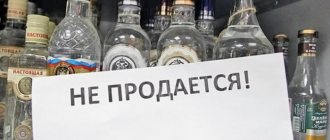ST 159 of the Criminal Code of the Russian Federation.
1. Fraud, that is, theft of someone else’s property or the acquisition of rights to someone else’s property through deception or abuse of trust, -
shall be punishable by a fine in the amount of up to one hundred twenty thousand rubles, or in the amount of the wages or other income of the convicted person for a period of up to one year, or by compulsory labor for a term of up to three hundred and sixty hours, or by corrective labor for a term of up to one year, or by restriction of liberty for a term of up to two years, or forced labor for a term of up to two years, or arrest for a term of up to four months, or imprisonment for a term of up to two years.
2. Fraud committed by a group of persons by prior conspiracy, as well as causing significant damage to a citizen, -
shall be punishable by a fine in the amount of up to three hundred thousand rubles, or in the amount of the wages or other income of the convicted person for a period of up to two years, or by compulsory labor for a term of up to four hundred eighty hours, or by corrective labor for a term of up to two years, or by forced labor for a term of up to five years. with restriction of freedom for a term of up to one year or without it, or imprisonment for a term of up to five years with restriction of freedom for a term of up to one year or without it.
3. Fraud committed by a person using his official position, as well as on a large scale, -
shall be punishable by a fine in the amount of one hundred thousand to five hundred thousand rubles, or in the amount of the wages or other income of the convicted person for a period of one to three years, or by forced labor for a term of up to five years with or without restriction of freedom for a term of up to two years, or imprisonment for a term of up to six years with a fine in the amount of up to eighty thousand rubles or in the amount of the wages or other income of the convicted person for a period of up to six months or without it and with restriction of freedom for a term of up to one and a half years or without it.
4. Fraud committed by an organized group or on an especially large scale or resulting in the deprivation of a citizen’s right to residential premises, -
shall be punishable by imprisonment for a term of up to ten years with or without a fine in the amount of up to one million rubles or in the amount of the wages or other income of the convicted person for a period of up to three years and with or without restriction of freedom for a term of up to two years.
5. Fraud associated with deliberate failure to fulfill contractual obligations in the field of business activity, if this act entailed causing significant damage -
shall be punishable by a fine in the amount of up to three hundred thousand rubles, or in the amount of the wages or other income of the convicted person for a period of up to two years, or by compulsory labor for a term of up to four hundred eighty hours, or by corrective labor for a term of up to two years, or by forced labor for a term of up to five years. with restriction of freedom for a term of up to one year or without it, or imprisonment for a term of up to five years with restriction of freedom for a term of up to one year or without it.
6. The act provided for in part five of this article, committed on a large scale, -
shall be punishable by a fine in the amount of one hundred thousand to five hundred thousand rubles, or in the amount of the wages or other income of the convicted person for a period of one to three years, or by forced labor for a term of up to five years with or without restriction of freedom for a term of up to two years, or imprisonment for a term of up to six years with a fine in the amount of up to eighty thousand rubles or in the amount of the wages or other income of the convicted person for a period of up to six months or without it and with restriction of freedom for a term of up to one and a half years or without it.
7. An act provided for in part five of this article, committed on an especially large scale, -
shall be punishable by imprisonment for a term of up to ten years with or without a fine in the amount of up to one million rubles or in the amount of the wages or other income of the convicted person for a period of up to three years and with or without restriction of freedom for a term of up to two years.
Notes.
1. Significant damage in part five of this article is considered to be damage in an amount of at least ten thousand rubles.
2. Large size in part six of this article is the value of property exceeding three million rubles.
3. In part seven of this article, the value of property exceeding twelve million rubles is recognized as particularly large in size.
4. Parts five to seven of this article apply to cases of deliberate failure to fulfill contractual obligations in the field of business activity, when the parties to the agreement are individual entrepreneurs and (or) commercial organizations.
Commentary to Art. 159 Criminal Code
1. Unlike other forms of theft, the subject of the crime in this composition can be not only someone else’s property, but also the right to someone else’s property.
2. The method of committing a crime is deception or abuse of trust.
Deception in fraud (see paragraph 2 of the Resolution of the Plenum of the Supreme Court of the Russian Federation of December 27, 2007 N 51 “On judicial practice in cases of fraud, misappropriation and embezzlement”) is divided into active and passive.
Active deception consists of deliberately misleading the owner or other owner of property by providing false information, submitting false documents, distorting electronic information about property and rights to someone else’s property, etc. Passive deception is a deliberate omission about legally significant circumstances that the perpetrator was obliged to report.
Deception during fraud creates the illusion of the legality of the transfer of property for the owner or other possessor of property. In other words, deception concerns the legal status of property as due to go to the fraudster, and the consequence of deception is that the victim himself transfers the property to the perpetrator. Accordingly, deception that facilitates access to property does not constitute fraud, but is qualified as theft, robbery or robbery, depending on the circumstances of the case (for example, entering an apartment under deception, stealing things taken for trying on).
On abuse of trust, see paragraph 3 of the Resolution of the Plenum of the Supreme Court of the Russian Federation dated December 27, 2007 N 51. Abuse of trust plays the function of creating the illusion in the owner or other possessor of property that he is acting in his own interests, transferring to the culprit the rights of ownership, use and disposal of property. In fact, the victim acts to his own detriment, since the perpetrator does not intend to return the stolen property.
3. In accordance with paragraph 4 of the Resolution of the Plenum of the Supreme Court of the Russian Federation dated December 27, 2007 N 51, the crime is considered completed from the moment when the property came into the illegal possession of the perpetrator or other persons and they received a real opportunity (depending on the consumer properties of this property ) use or dispose of it at your own discretion.
4. A qualifying sign of fraud (Part 2) is the commission of a crime by a group of persons by prior conspiracy (see paragraph 21 of the Resolution of the Plenum of the Supreme Court of the Russian Federation of December 27, 2007 N 51) or causing significant damage to a citizen (see paragraph 25 - 27 Resolution of the Plenum of the Supreme Court of the Russian Federation of December 27, 2007 N 51).
5. A particularly qualifying sign of fraud (Part 3) is the commission of a crime by a person using his official position (see paragraph 24 of the Resolution of the Plenum of the Supreme Court of the Russian Federation of December 27, 2007 N 51) or on a large scale (see paragraph 25 - 27 Resolution of the Plenum of the Supreme Court of the Russian Federation of December 27, 2007 N 51).
6. On fraud committed by an organized group or on a particularly large scale (part 4), see respectively paragraphs 23 and 25 - 27 of the Resolution of the Plenum of the Supreme Court of the Russian Federation of December 27, 2007 No. 51.
Fraud resulting in the deprivation of a citizen’s right to residential premises involves deprivation of not only the right of ownership to residential premises (understood in the sense of Article 16 of the Housing Code of the Russian Federation), but also other property rights to such premises or termination of a social tenancy agreement.
7. Articles 159.1 - 159.6 of the Criminal Code act as special rules in relation to Art. 159 of the Criminal Code, and the absence of signs of a special composition excludes the possibility of qualification under the general norm of Art. 159 of the Criminal Code.
8. Parts 5 - 7 of the commented article represent a reconstruction of the former art. 159.4 CC.
The formal condition for bringing to criminal liability is the infliction of significant damage. In accordance with Note 1 to the article, damage in an amount of at least 10 thousand rubles is recognized as such. If, when committing fraud in the field of business activity, damage is caused in an amount less than the specified amount, in no case can the act constitute a crime under Part 5 of the article, and cannot also be qualified under Part 1 of the article. Otherwise, this also does not lead to inevitable criminal liability, since the significance of the damage remains an evaluative concept established by the investigation and the court based on all the circumstances of the case. In any case, taking into account Part 6 of the article, causing damage in an amount exceeding 3 million rubles is always recognized as a criminal offense.
9. The corpus delicti is characterized by a special situation in which the crime was committed - failure to fulfill contractual obligations in the field of business activity; methods of committing a crime remain deception or abuse of trust (for example, the culprit may receive an advance payment for the performance of work, services, prepayment for the supply of goods, without intending to fulfill his obligations).
Note 4 to the article reveals the scope of entrepreneurial activity by indicating the need, firstly, for the existence of a contractual relationship between the perpetrator and the victim and, secondly, for both parties to the agreement (as indicated by the plural in the note) to have the status of an individual entrepreneur or commercial organizations. Fraud, even in the sphere of entrepreneurial activity, but in a situation where the injured person is an individual - a consumer, should be classified under Parts 1 - 4 of the commented Article 159 of the Criminal Code of the Russian Federation. In the absence of the status of an individual entrepreneur or commercial organization for one of the parties to the agreement, the act also cannot be qualified under parts 5 - 7 of the article. Accordingly, cases of fraud when the parties to the agreement are non-profit organizations or persons carrying out entrepreneurial activities without forming a legal entity in violation of the requirements for registration as an individual entrepreneur (clause 4 of Article 23 of the Civil Code of the Russian Federation) do not fall under the scope of fraud in the field of entrepreneurial activity.
10. Taking into account the current judicial practice, it is impossible to qualify under Parts 5 - 7 of Art. 159 of the Criminal Code (and are subject to parts 1 - 4 of the article) cases: a) fraud in the course of the activities of a fictitiously formed legal entity or a fictitiously registered individual entrepreneur (i.e. those who do not actually intend to carry out business activities); b) fraudulent entrepreneurial activities in relation to items and substances restricted or prohibited for circulation (for example, weapons, narcotic drugs or psychotropic substances); c) fraud in the absence of formal and legally valid (i.e. not fake) contractual relations between the entities.
11. Unlike a civil tort, business fraud presupposes intentionality, i.e. the emergence of intent to fail to fulfill contractual obligations in the field of entrepreneurial activity before the conclusion of the contract and (or) the occurrence of an obligation (if these points differ). These points must be determined in accordance with civil law.
12. Competition, parts 5 - 7 of article and art. 159.1 of the Criminal Code is resolved in favor of the commented article 159 of the Criminal Code of the Russian Federation.
Preventive measure
If a citizen is suspected or accused of a crime specified in Art. 159, part 3, the investigator/interrogator can choose any option from Art. 98 Code of Criminal Procedure. As a rule, in relation to such persons a measure is taken in the form of:
- Signs not to leave.
- Arrest (domestic).
- Collateral.
- Detention.
- Personal guarantee.
The decision to take a citizen into custody, apply a measure in the form of bail or house arrest is made exclusively in court. Taking a subscription or personal guarantee is carried out during preliminary work by authorized persons (inquirer/investigator).
Second commentary to Art. 159 of the Criminal Code of the Russian Federation
1. The subject of fraud can be either someone else’s property, as in other forms of theft, or the right to property, which reflects the specifics of this form of theft.
2. Theft in the form of fraud can be committed in one of two ways: by deception or by abuse of trust.
3. Deception can be active or passive.
Active deception consists of deliberately misleading the owner or other possessor of property by reporting legally significant false information that creates an erroneous impression in the victim regarding the grounds for the transfer of property into the possession of the perpetrator.
Passive deception means keeping silent about legally significant circumstances that the perpetrator was obliged to report, as a result of which the victim is mistaken about the existence of legal grounds for transferring property or the right to it to the perpetrator.
4. Deception may concern individual items (their availability, identity, quantity, size, price, etc.), the identity of the perpetrator or other citizens (identity, some qualities or legal characteristics), various events and actions (clause 2 Resolution of the Plenum of the Supreme Court of the Russian Federation dated December 27, 2007 No. 51 “On judicial practice in cases of fraud, misappropriation and embezzlement”).
5. Breach of trust as a method of fraud lies in the fact that the perpetrator, in order to illegally obtain someone else’s property or acquire the right to it, uses the special trust relationship that has developed between him and the owner or possessor of the property. Examples of this method include, for example, the deliberate failure of the perpetrator to fulfill obligations assumed (failure to repay a debt, failure to perform work on account of an advance received, failure to return leased property), if at the time of accepting such obligations the perpetrator had no intention of fulfilling them and acted for the purpose of gratuitous turning someone else's property into one's own benefit.
6. The specificity of fraud is that the owner or other owner of the property, being misled, transfers the property to the fraudster, mistakenly believing that there are legal grounds for this and that he is acting in his own interests. The peculiarity of fraud is that the most significant of the circumstances regarding which the perpetrator misleads the owner or possessor of the property serves as a basis (of course, imaginary) for transferring the property to the perpetrator. Fraud or breach of trust must be a method of directly taking possession of property or acquiring rights to it.
7. Fraud is recognized as a completed crime from the moment the perpetrator actually receives someone else’s property or acquires the right to someone else’s property.
8. From the subjective side, fraud is characterized by direct intent to illegally obtain someone else’s property or acquire the right to it through deception or abuse of trust that arose before the commission of these actions.
9. The subject of fraud can be a person who has reached the age of 16 years. Such qualifying signs of fraud as its commission by a group of persons by prior conspiracy, as well as causing significant damage to a citizen (Part 2 of Article 159 of the Criminal Code), have the same content as in the case of theft (see comments to Article 158 of the Criminal Code ).
A specific feature of especially qualified fraud is its commission by a person using his official position (Part 3 of Article 159 of the Criminal Code). It means that an official or a state or municipal employee who is not an official, or a person performing managerial functions in a commercial or other organization, contrary to the interests of his service, uses the opportunities arising from his official powers to illegally seize someone else’s property or to illegally acquire a right on him.
The second particularly qualified type of fraud is its commission on a large scale (Part 3 of Article 159 of the Criminal Code). This sign has the same content as during theft.
10. The most dangerous types of fraud are provided for in Part 4 of Art. 159 of the Criminal Code. They are characterized by the commission of this crime by an organized group or on a particularly large scale (these signs have the same content as in the case of theft), and also if the act entailed the deprivation of a citizen’s right to housing.
11. Due to the fact that Art. 159.2 of the Criminal Code became invalid due to its unconstitutionality, Art. 159 of the Criminal Code has been supplemented with parts 5–7 on fraud committed in the field of business activity.
In contrast to the general elements of fraud, this crime is expressed in the deliberate failure to fulfill contractual obligations in the field of business activity (see paragraph 7 of the resolution of the Plenum of the Supreme Court of the Russian Federation dated November 15, 2021 No. 48 “On the practice of application by courts of legislation regulating the specifics of criminal liability for crimes in sphere of entrepreneurial and other economic activities").
12. The objective side of this type of fraud is the theft of someone else’s property or the acquisition of rights to someone else’s property through deliberate failure to fulfill contractual obligations in the field of business activity. Deception may consist, for example, in the conclusion by the head of a construction organization of an agreement for participation in shared construction of a residential building, the apartments of which have already been sold to other buyers; in the entrepreneur’s refusal to fulfill the terms of the contract for the supply of goods after receiving payment from the counterparty, etc.
13. The subject of this type of fraud is a special one: an individual entrepreneur, a manager or a member of the management body of a commercial organization.
14. Significant damage as a prerequisite for criminal liability means that it amounts to at least 10 thousand rubles. (Note 1 to Article 159 of the Criminal Code).
15. Large amount (Part 6 of Article 159 of the Criminal Code) occurs when the value of the stolen property exceeds 3 million rubles. (note 2), and an especially large amount - when the value of the stolen property is over 20 million rubles. (note 3).
16. Fraud is qualified as committed in the field of entrepreneurial activity if the parties to the agreement are individual entrepreneurs and (or) commercial organizations (note 4).
Grounds for liability
The subject of the act specified in Art. 159, part 3 of the Criminal Code, specific. According to general principles, sane individuals over the age of 16 are held accountable. As for the part under consideration, the subject may be a person who holds a certain post. Large size is another sign that makes it possible to apply Art. 159, part 3. The commentary to the norm indicates that the amount of damage in value (monetary) terms should not be more than a million rubles, but not less than 250 thousand. If the amount of harm falls outside the specified framework, other parts of the article under consideration are used.
Case trial
Materials collected in relation to persons who committed acts under Part 1, with an indictment, are sent according to the jurisdiction of the first instance to the magistrate. Cases of crimes, which are indicated in parts three, four and two of the article under consideration, are dealt with by district (regional) authorized bodies. During the meeting, all materials and evidence collected at the stage of preliminary investigative work are subject to direct study. As an exception, the legislation allows cases in which a court decision is made in a special procedure for criminal proceedings. The decision on further procedural actions against the accused must be based on the evidence that was studied during the hearing. During the trial, the judge hears the testimony of the defendants, victims, and witnesses. Experts also give testimony during the meeting. The judge reads out protocols and other documents and performs other actions aimed at examining the materials provided.
Confiscation of property
According to the provision of norm 104.1 of the code, this procedure does not provide for the seizure in favor of the state, in accordance with the verdict, of money, material assets, property that were acquired by the perpetrator as a result of a criminal act in the form of fraud. This right is established by Article 1064 of the Civil Code. According to its provisions, the harm caused by the subject to the victim must be fully compensated. The culprit shall compensate for the damage accordingly. The court, upon the application of the prosecutor, the victim, the plaintiff (civil), or their representatives, may adopt a decision on the use of measures aimed at ensuring compensation for damage resulting from the crime. This right is granted by Art. 230 Code of Criminal Procedure. The executors of this judicial act are FSSP employees. The decree, therefore, can seize any property owned by the person guilty of unlawful acts.






